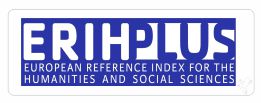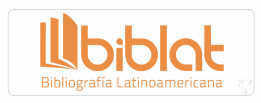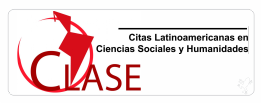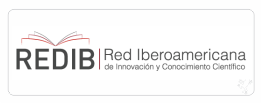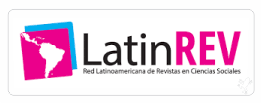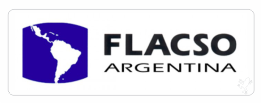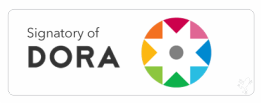Principales criterios de selección del contenido de aprendizaje. En la formación de la competencia lingüística de los alumnos
Palavras-chave:
Lingüística, competencia lingüística, imagen lingüística del mundo, enfoque de estudio de la cultura, comunicación intercultural.Resumo
La formación de la competencia lingüística es el tema de actualidad en la ciencia lingüística moderna. En el curso del aprendizaje, el desarrollo y la educación del estudiante de la escuela, el papel de la lengua rusa como el sujeto de la cosmovisión que proporciona la unidad e interacción de la lengua, la cultura y la personalidad es indiscutible. El aprendizaje del idioma ruso se construye teniendo en cuenta el establecimiento en la lingüística del enfoque de estudio de la cultura que permite resolver problemas de formación de habilidades de comunicación, la actualización de las funciones formativas, reflexivas y otras de los estudiantes. En el artículo, los autores estudian los principales criterios de selección del contenido de aprendizaje en la formación de la competencia lingüística de los alumnos. Según la opinión de los autores de la investigación estudiada en el artículo, los criterios de selección del material de aprendizaje permiten definir el carácter del material didáctico, textos especiales que reflejan la historia de la lengua y la cultura. El autor llegó a la conclusión de que la formación de la competencia lingüística de los estudiantes también considera la formación del cuadro del mundo, que generalmente se considera como la educación que pertenece a la conciencia humana y el modo de percepción del mundo circundante. Además, los autores del artículo piensan que para la formación de la competencia lingüística de los alumnos es necesario utilizar los medios de comunicación intercultural: desarrollo de la etiqueta del habla, estereotipos nacionales de la conducta del habla, unidades de lenguaje con un componente nacional y cultural de La semántica como fuente de información extralingüística en el curso del diálogo de las lenguas y culturas nativas y estudiadas.
Downloads
Referências
Arkhipova, E.V. (2004). Bases de una técnica de desarrollo del habla de los alumnos: el Libro. Ayuda. para stud ped. universidades / Verbum, - 192 ?.
Bakhtin, M.M. (1986). Estética de la creatividad verbal / ?.?. Bakhtin. - Moscú: Isk-in, - 444 p.
Bibler, V.S. (1991). De la ciencia a la lógica de la cultura: dos introducciones filosóficas al siglo XXI / V.S. Bibler - Moscú: Politizdat, 412 p.
Erofeeva, I.V., Sadrieva, K.E. (2016). Representación de la imagen humana mediante el uso de recursos de formación de palabras en el lenguaje de las crónicas rusas (utilizando el ejemplo de los sustantivos con sufijos - (??) ???). - Revista de lengua y literatura, ISSN: 2078-0303, vol. 7. No. 1. Febrero, - pp. 203-206.
Nurullina, G., Usmanova, L.A. (2016). La idiotez de I.A. Bunin: Dominantes emotivos y semánticos en la descripción de fenómenos naturales // Revista de lengua y literatura, ISSN: 2078-0303, vol. 7. No. 3. Agosto, - ??. 199-202.
Khabibullina, A.Z., Nagumanova, E. F., Amurskaya, O. Y. (2016) Literatura clásica rusa en un entorno multiétnico: los problemas de recepción y la metodología de enseñanza // Los procedimientos europeos de ciencias sociales y del comportamiento EpSBS. Volumen XII. PÁGINAS. 75-82.
Lotman, Yu.M. (1999). Dentro de los mundos pensantes. Hombre - texto - semiosfera - historia / - (Lenguaje, semiótica, cultura).
Murzina, N.Y., Safonova, S.S., Chupryakova, O.A. (2016). La oposición binaria nativa / extranjera como una manera de conceptualizar la imagen artística del mundo de V. Rasputin // Journal of Language and Literature, 2016, Volume 7, No. 3, pp. 80-84.
Novikova, L.I. (2005). Aspecto cultural de la enseñanza de la lengua rusa en los grados 5-9 como medio para comprender a los estudiantes de la cultura nacional: Monograph / L.I. Novikov. - Moscú: Prometeo, - 400 p.
Rakhimova, D.I., Yusupova, Z.F. (2016). Formación lingüística de trabajadores migrantes: recomendaciones metodológicas para profesores // Revista de lengua y literatura. - Vol.7, Is.3. - P.314-317 3-207.
Svetlana S., Safonova, S.S., Zamaliutdinova. E.R. (2016). Semántica y funcionamiento de las construcciones sintácticas en el lenguaje de los medios de comunicación. DOI: 10.7813/jll.2016/7-4/27.
Usmanova, L., Nurullina, G. (2017). Métodos de explicación de la categoría de «tiempo natural» en los textos literarios de I.A. Bunin // 4ª Conferencia Científica Multidisciplinaria Internacional sobre Ciencias Sociales y Arte (24-30 de agosto de 2017, Albena Co., Bulgaria). Actas de congresos. Libro 3. Ciencia y sociedad. Vol. II. Psicología y psiquiatría. Lenguaje y lingüística. - Pp. 707-712.
Vygotsky, L.S. (2005). Psicología del desarrollo humano. - Moscú: Sentido de Izd-vo; Eksmo Publishing House, - 1136 p.
Yusupova, Z.F. (2016). Diálogo de las culturas de la enseñanza del ruso como idioma extranjero en la audiencia china: enfoques y soluciones // IFTE 2016 - 2º FORO INTERNACIONAL SOBRE EDUCACIÓN DE PROFESORES. - Vol.12, Is .. - P.203-207.





